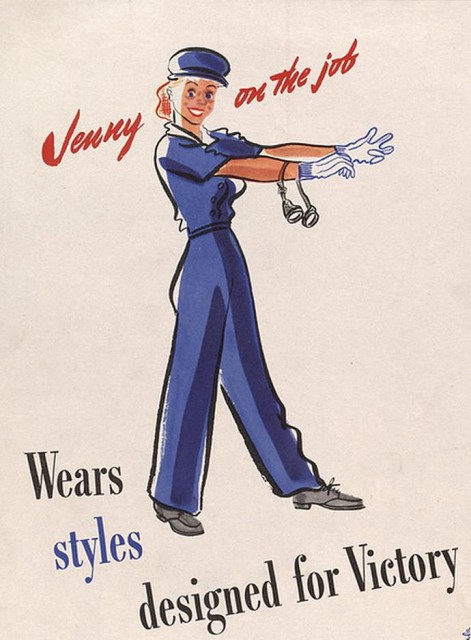What It Means to Be Professional
by Megan Reynolds

College does a fantastic job of teaching you how to properly roll a joint while sitting on a curb outside a frat house, and how to get more time to turn in your term paper. It teaches you valuable lessons about the impermanence of friendships, and how to negotiate yourself in social situations that make you intensely uncomfortable. Depending on what you studied, you learned how to talk about your feelings, to dissect other people’s work, and to take criticism in a manner that is cool, calm and collected. Where it fails is in giving you any reasonable skills that prepare you for an environment where you have to be professional.
Here are some things I have been told are professional. Blazers. Pants that are not jeans. Wearing pants while you work. Having an email signature, even on your personal email. Knowing how to dial in on a conference call. Org charts. Not panicking every time your boss asks you to step into her office. Hearing the words “Can I see you for a sec?” and not asking immediately if you’re about to be fired.
Being professional is really just maturity in a setting where you don’t know anyone else, like going to someone else’s family reunion, and being unfailingly polite. It’s having an innate understanding of how to run a business, and knowing how to treat your employees with the kindness they deserve. As an employee, being professional is just showing up and doing your job, and doing it well. It’s less about knowing the “right” things to say, and more about doing what you came to do — your work. The stilted social interactions that pepper most offices aren’t necessary anymore, but understanding the boundaries in an office where everyone seems equal is hard at first.
In the modern office, everyone is your friend. There are multiple happy hours, brisk claps on the shoulder, and everyone seems to be pals. If you’re lucky enough to work in an industry where everyone in the office is around the same age, going to work feels more fun than anything else. Perhaps there is beer in the fridge. Perhaps instead of sitting at your desk for an hour, you can flop on a couch in someone’s office and discuss the best place to get a manicure. You talk to people in the kitchen about how shitty this season of True Blood is, or something something soccer, and they are nice and friendly and kind. Everyone is equal, except when the person taking Jager shots with you is your boss, who puts you in a cab later that night, but chastises you for slinking in late, clutching a coffee with your sunglasses still on.
I worked at a company staffed primarily by young people my age or younger. The people in charge were older than us, but they were cool in the way that grown-ups are when they’re painfully aware of the fact that everyone underneath them could rise and take their jobs at any time. Before the dark days, before the company almost went under and we all lost our jobs, the atmosphere was casual, dorm-like, fun. We had parties. We drank at 5 in the office. We were close, like siblings or friends, thrown in together on the same trip, and somehow making it through to the other side. We were buttoned up only when we had to be, for client meetings, or when the CEO came into town. Most of the time, no one wore shoes, padding around the office in bare feet, eating snack-size bags of Cheez-its, and gossiping. I did my work because I have a work ethic that is solid, built out of the fear of losing my job at any time. Others were less concerned, and quite frankly, the atmosphere made it very difficult to care one way or the other.
I am a casual person by nature, unschooled in the areas of table manners and the intricacies of various forks and their placements. I have a sense of what feels right and wrong, but I’m pretty sure that these instincts aren’t precisely “professional.” My workplace demeanor is relaxed. I am eager to talk and generally disheartened by the banality of traditional office culture. I am a hard worker, someone who wants to do a good job, and do it well, but I think that treating every person like a human being who is more or less my equal is the best way to maintain the new professionalism.
You can swear if you want to, or tell a story around the water cooler about your antics the night before. You can sit in the corner and do your work very quietly, sending out emails that are a touch more formal than everyone else’s. You can be the one in the office who starts the rallying cry before Whiskey Wednesdays, running a lap around the office and pounding on desks, closing laptops and flickering the lights. You can recognize that your co-workers, the ones who are in the trenches with you day in and day out, are a combination of your siblings and your friends, and treat them with the same combination of kindness and respect. You can understand that every single person you work with is a human being, who rides the train home, and deals with clogged toilets and sometimes drinks too much wine at dinner. You can tell yourself to treat everyone with respect. You can be a professional by being nice.
Megan Reynolds lives in New York.
Image: U.S. Public Health Service, 1943
Support The Billfold
The Billfold continues to exist thanks to support from our readers. Help us continue to do our work by making a monthly pledge on Patreon or a one-time-only contribution through PayPal.
Comments